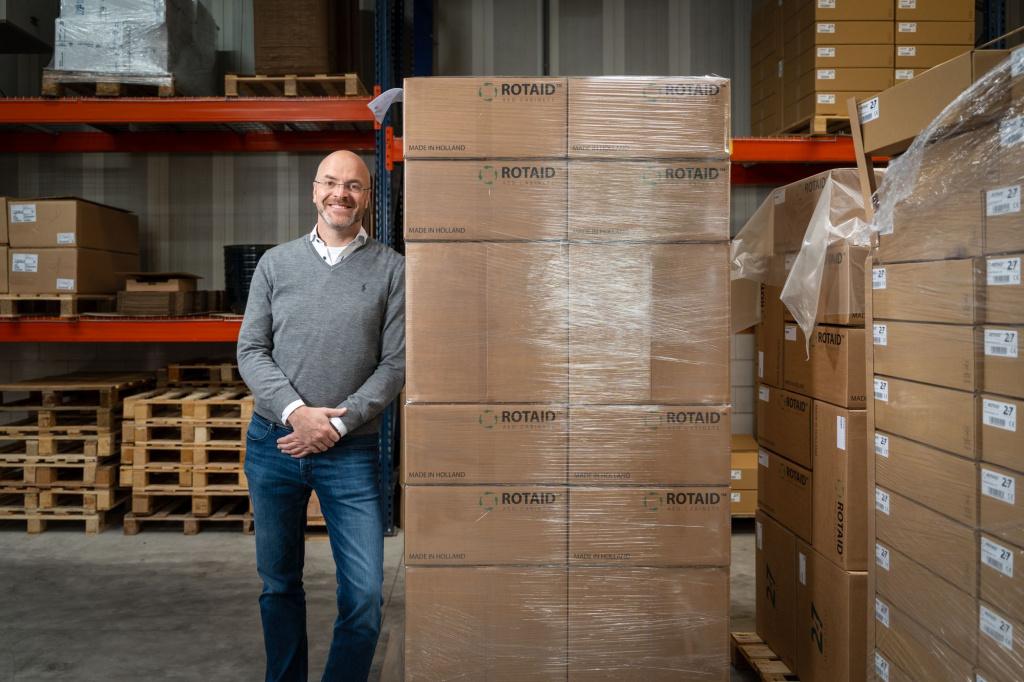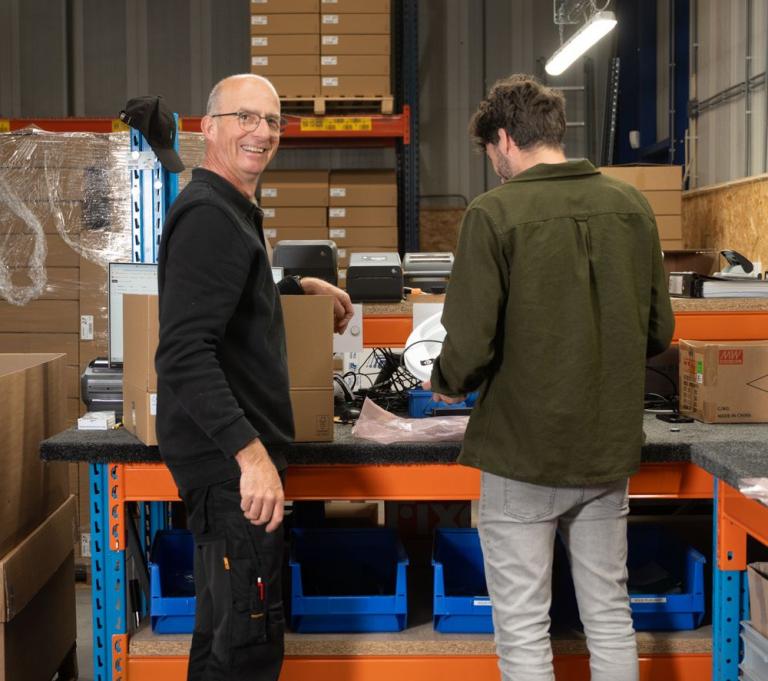
Every 3 seconds someone suffers sudden cardiac arrest. 25,000 times a day, 9 million times a year. Only 5% survive this ... Only with a shock via an automatic external defibrillator (AED) can the victim survive this cardiac arrest. But only if this happens within 6 minutes ... Help almost always comes too late. We wanted to do something about that."
Speaking is Ruben Halmans, founder and managing director of Rotaid AED Cabinets in Venray. This company develops and sells special round storage cabinets for AEDs. So that they are always and for everyone accessible and quickly deployable in case of acute cardiac arrest. The company was founded in 2010. Now 15 years later, Rotaid has become the global symbol for an AED. Ruben looks back on the start of his company and looks ahead to the future.
Meet Rotaid
When every minute counts
.Ruben: "It started in 2007 when I saw that medical services could not always respond in time to a cardiac arrest outside the hospital. Bystanders could do nothing but wait for the ambulance. While at such a moment every minute counts. I wanted to come up with a solution for that."
Visible for everyone and quick to use
This led to the installation of 45 publicly accessible defibrillators in outdoor cabinets around the city. The Rotaid-AED cabinet was specially designed for this purpose. Ruben: "With this cabinet, AEDs can be hung in any location, are visible to everyone and can be used quickly and easily."
Survival rate greatly increased
.Ruben explains the other big advantage of the AED cabinets. "The Rotaid 24/7 constantly monitors the status of the AED and ensures that it is optimally findable. Both day and night, as well as online, via the built-in technology. With this, the AED is always available and 'rescue ready'. Also, bystanders are immediately informed about the emergency and are communicated in time when maintenance is required. All in all, this greatly improves operational reliability and greatly reduces response time.
"It is very important to be able to shift gears well, move on, make decisions and look ahead."
The symbol for an AED
More than 15 years and 90,000 cabins later, Rotaid AED Cabinets has become the global symbol for an AED. Rotaid now operates in 65 countries. What are important key moments in this? Ruben: "Many things are under your own control, but not everything. Think of the COVID pandemic and subsequent supply chain issues. Think of the conflicts in the Middle East and Ukraine. Think of the current political landscape in America. Then it is and remains very important to switch quickly and think ahead, and to be in good contact with your customers and partners," Ruben emphasizes.
.Made In Holland
Ruben: "We have always stayed true to our course, mission and vision. We make all our products in the Netherlands, together with Dutch suppliers and partners from the region. This allows us to deliver quality, develop and improve products quickly and scale up easily. Made In Holland is truly a brand! We are proud of that."
Think a little bigger
.Does Ruben have any advice for other entrepreneurs? "Don't be afraid to think big. In 2025, national borders are just dotted lines on a map. The global market is more accessible than ever. Take advantage of that."
Looking forward
What was your outlook when you started Rotaid?
"In 2008, when we saw how successful we were with our 45 cabinets in Venray, we thought: how many similar communities are there in the world ...? That was enough for me to continue. If it can be done in Venray, it can be done anywhere. We grew with projects in the Benelux and Germany. We soon expanded that to include Poland, Italy and Scandinavia. Now we are partners in projects all over the world, with a strong international distribution network."
What is your look ahead now?
"In recent years, our focus has been very much on making as many AEDs as possible available in public areas. In order to save as many lives as possible. This, of course, we will continue to do. But we now also focus on the perpetuation and sustainability of the existing AED infrastructure. Such as better remote management with smart technology. In this, the technology we developed with LIOF at the time has an essential role."
